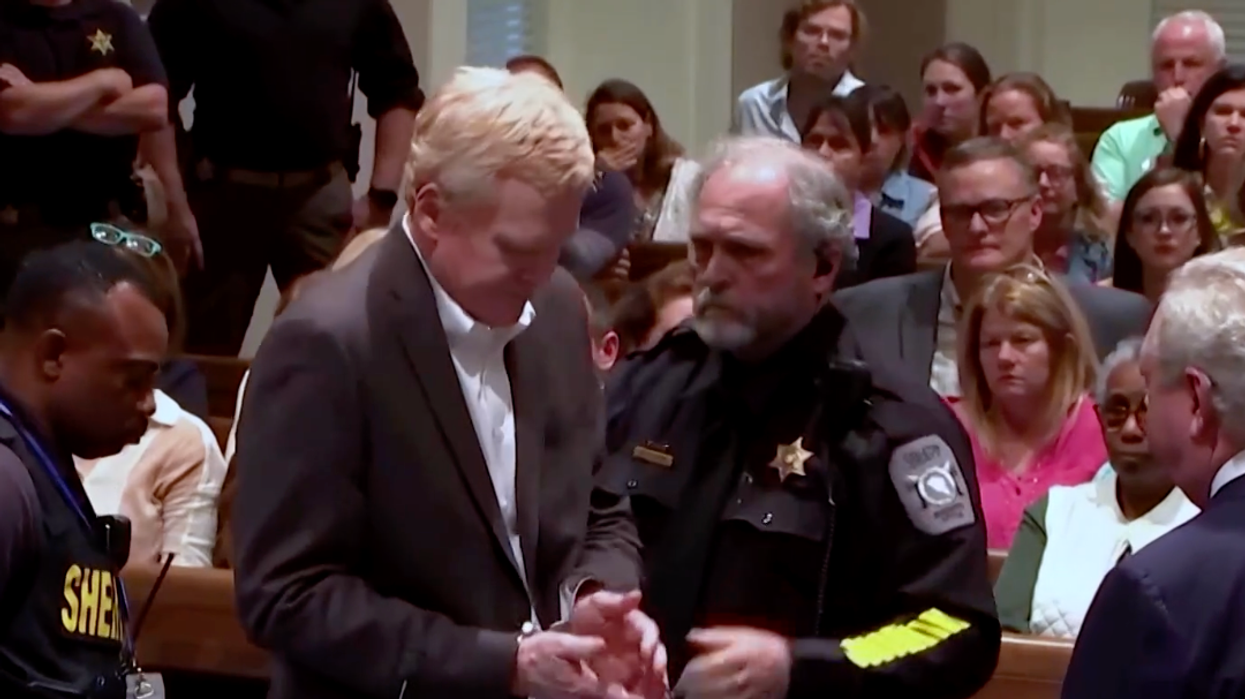Murdaugh Coroners' Folly Raises Hard Questions About Homicide Convictions

Last Thursday, a jury found former solicitor of South Carolina’s 14th District Richard Alexander “Alex” Murdaugh guilty of shooting and killing his wife, Maggie, and his son, Paul, in 2021. South Carolina Judge Clifton Newman sentenced Murdaugh to two consecutive life sentences the next day.
As the nation watched in rapt attention, the Murdaugh trial reintroduced a staple of every true crime murder saga: the medical examiner/coroner. And the trial showed how vital — and inconstant — they are in determining whether a homicide occurred or not.
Medical examiners and coroners both investigate deaths that may be the result of a criminal act or other suspicious circumstances, but a medical examiner is a licensed physician who is specially trained in forensic pathology. A coroner, on the other hand, is an elected or appointed official who is responsible for investigating deaths in certain jurisdictions, usually at the county or municipal level. Coroners aren’t required to have any particular medical or legal qualifications.
Given their lack of training and susceptibility to political pressure, coroners seem more likely to make mistakes or choose a manner of death that doesn’t match the facts. But the rate of inaccuracy on death certificates completed by coroners as opposed to medical examiners isn’t necessarily higher.
In a study of death certificates in Vermont, for example, researchers found that more than half of death examinations contained major miscalculations, but that the physician/non-physician difference in the investigator didn’t matter in a statistically significant way.
According to the National Registry of Exonerations, a project of The University of California Irvine Newkirk Center for Science & Society, the University of Michigan Law School, and the Michigan State University College of Law, 103 people were exonerated of murder because there was no crime; 26 more were cleared of manslaughter convictions because there was no crime. These wrongful convictions lie at the feet of the medical examiners or coroners: their determination of manner of death was inaccurate, and in a material way. There would never have been any criminal case if the reported manner of death had been accurate.
The 129 exonerations aren’t concentrated in coroner country. They’re spread among states with medical examiners and those who employ coroners.
Around five percent of medical examiner conclusions determine a cause of death to be criminal. Of that criminal subsection, about five percent will be ambiguous in some respect. Even if every death were examined this way — the Centers for Disease Control and Prevention says 3,464,231 people die in this country every year; only one-third to one-half are examined for cause and manner of death — that leaves 173,212 potential homicides. Of those, 8660 are hard to discern.
In 2020, 12,440 arrests were made for murder and non-negligent manslaughter. Some of those charges must have been dropped or even disproven at trial, but the numbers should be closer. More corpses should be examined for sure, but even a rough error rate is hard to pinpoint.
In many ways, the role of the official who determines death is more important than the police or the judiciary when settling what happened when someone died -- and it’s one of the most loosely constructed offices in state and municipal governments.
When an erroneous finding occurs, it's not always a frame-up. A variety of factors, including the quality of the evidence available, the thoroughness of the investigation, and the expertise and experience of the examiner or coroner can influence the accuracy of their findings. Additionally, medical experts may debate their conclusions, particularly in cases where the cause of death is not immediately apparent or where multiple factors may have contributed to the death.
But the Palmetto Low Country where the Murdaugh family acted in some law enforcement capacity for decades might be the perfect place where the shortcomings of a compromised coroner could play out. And they did, but not in expected ways.
The Colleton County, South Caroline coroner, Richard Harvey, studied “pre-med” at Medical College of South Carolina but didn’t attend medical school there. According to his own testimony at Murdaugh’s trial, Harvey is one of the first coroners in South Carolina to be medically trained. He also determined the time of Maggie and Paul Murdaugh’s death by placing his hands under their armpits to measure their body temperatures— as opposed to taking a rectal temperature, which would have required him to pull down the decedents’ pants. An axillary body temperature using a thermometer under the arm is an accepted method of determining time of death, but sliding fingers under armpits isn’t. It never has been.
As it turns out, Harvey’s finger stick estimate probably wasn’t that far off. With Harvey and his 30 years experience and some education at the helm, Colleton County is one of the better coroner’s offices, even if Google Maps shows it housed in an old Pizza Hut.
In neighboring Hampton County, South Carolina where Murdaugh served as solicitor, County Coroner Anna Fields graduated from high school. That’s the extent of her education. Fields defeated the previous coroner, Angela Topper, who was appointed to replace the coroner before her, Ernie Washington, after he resigned, mid-term, in 2019, without public explanation.
The Hampton County coroner deserves as much scrutiny as the one who testified because Maggie and Paul Murdaugh’s murders aren’t the only ones at play in this sordid tale. Washington had ruled the manner of deaths in two cases — that of 19 year-old Stephen Smith in 2015 and Murdaugh family housekeeper Gloria Satterfield in 2018 — as accidental and natural. But investigations into those deaths have since been reopened because there’s reason to believe they were unnatural — and potentially closely tied to Murdaugh family members.
Washington wanted to rule Smith’s death a homicide — by gunshot wound to the head, which was patently incorrect — but was overruled by the Medical University of South Carolina pathologist who said it was a hit-and-run. The coroner-pathologist showdown wasn’t a battle between facts and wishes; it pitted two egregious errors against each other. Washington eventually conceded, and Smith’s death was ruled an accident per the pathologist’s assessment. But if Washington had prevailed in his determination of a homicide, any defendant arrested for it could have easily defeated the charge simply by proving that it wasn’t a gunshot wound. It’s hard to say whose mistake — Washington’s or the pathologist’s — protected the perpetrator more.
Ever since the National Research Council concluded this system was “in need of significant improvement” in 2009 and recommended that states replace coroners with medical examiners, reform efforts have been underway. Because so few people want to become pathologists and poke stiffs, there’s a serious shortage of people qualified to work in these offices. Right now, the National Association of Medical Examiners lists more job openings than the number of people who graduate as forensic pathologists each year, which is about 40.
To train coroners to make them as good as medical examiners doesn’t make sense anyway, since empirically medical examiners produce results that are just as bad.
The coroners’ folly exposed by the Murdaugh case can’t be limited to South Carolina alone. It’s not limited to any area of the country and it should undermine our moral confidence in homicide convictions. In many jurisdictions, the person who sets off the whole murder investigation often has little idea what he or she is doing.
Chandra Bozelko did time in a maximum-security facility in Connecticut. While inside she became the first incarcerated person with a regular byline in a publication outside of the facility. Her “Prison Diaries" column ran in The New Haven Independent, and she later established a blog under the same name that earned several professional awards. Her columns now appear regularly in The National Memo.








